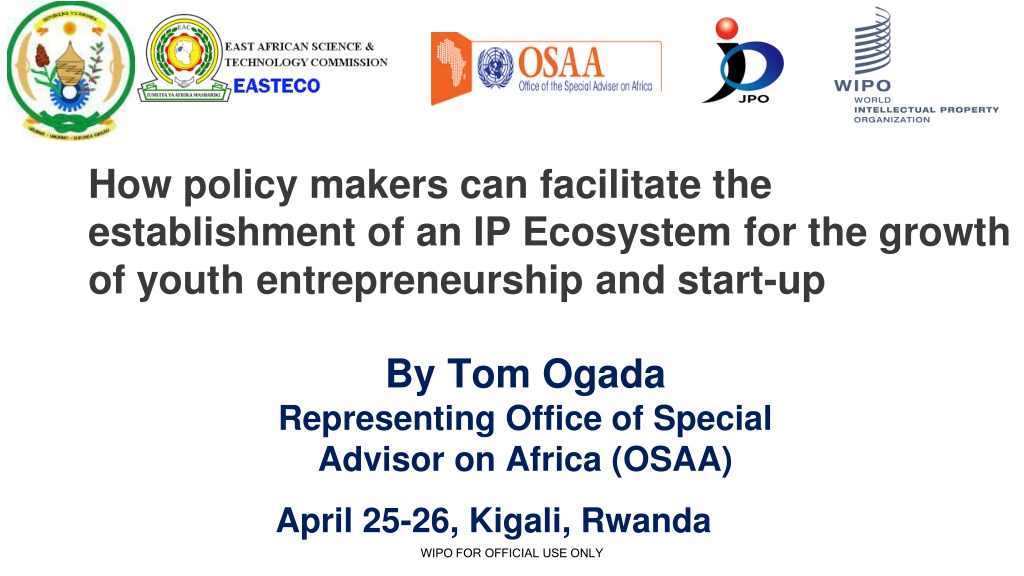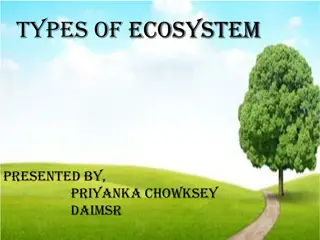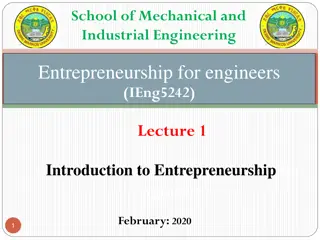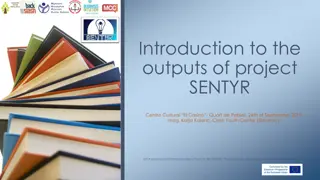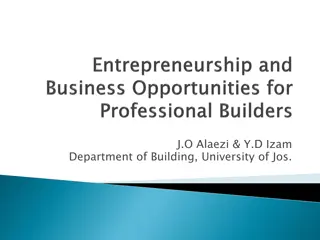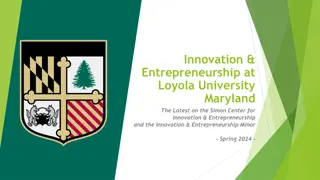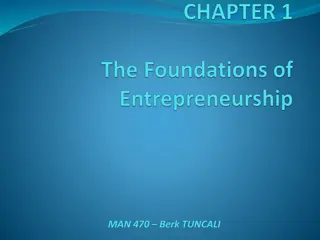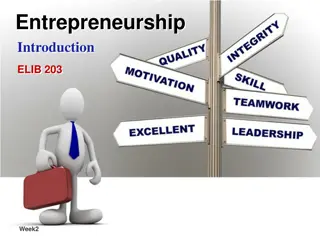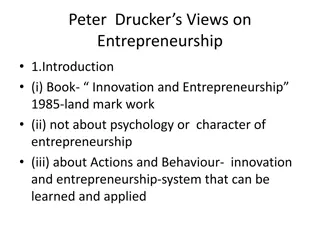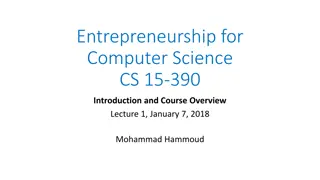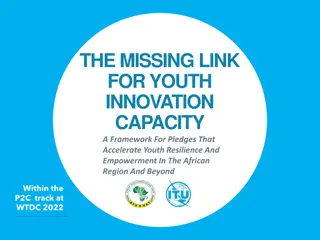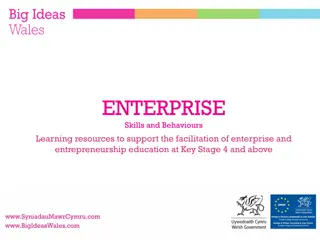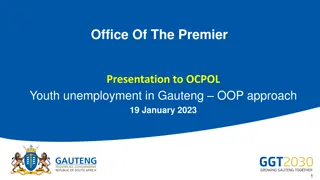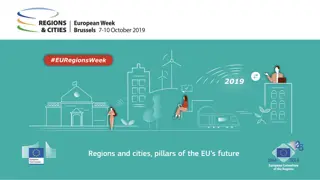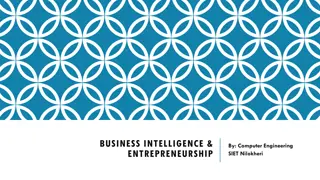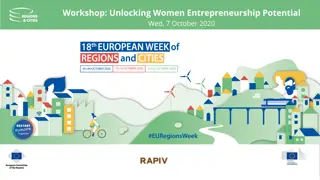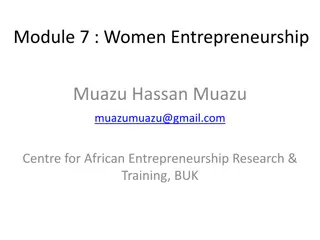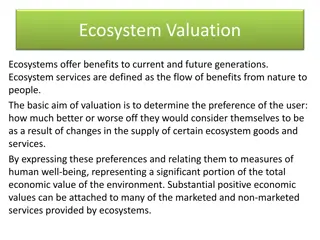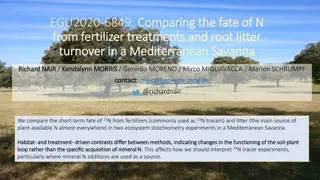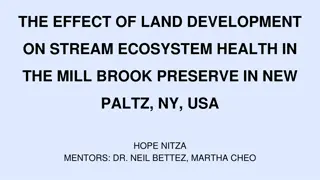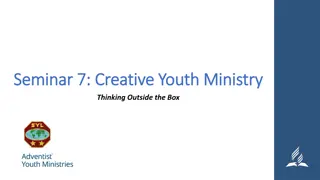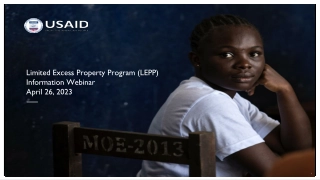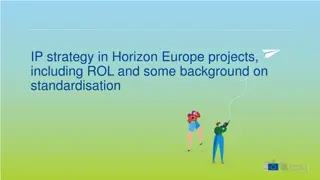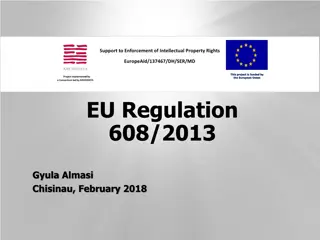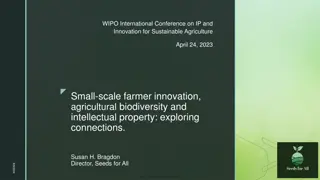Facilitating an Intellectual Property Ecosystem for Youth Entrepreneurship Growth
In order to facilitate the establishment of an intellectual property ecosystem for the growth of youth entrepreneurship and start-ups, policy makers can take various interventions including revisiting the IP ecosystem, the need for evidence-based decision making, development of startups policies and legislations, addressing IP challenges, and implementing possible policy/strategy intervention areas. The IP ecosystem involves IP creation, protection, commercialization, and enforcement, with a focus on academia, innovators, SMEs, startups, and various structures, policies, legislations, and actors involved in the process. Additionally, leveraging evidence for policy making and recommendations from STI think tanks like the African Centre for Technology Studies can significantly support the policy-making processes.
Download Presentation

Please find below an Image/Link to download the presentation.
The content on the website is provided AS IS for your information and personal use only. It may not be sold, licensed, or shared on other websites without obtaining consent from the author. Download presentation by click this link. If you encounter any issues during the download, it is possible that the publisher has removed the file from their server.
E N D
Presentation Transcript
How policy makers can facilitate the establishment of an IP Ecosystem for the growth of youth entrepreneurship and start-up By Tom Ogada Representing Office of Special Advisor on Africa (OSAA) April 25-26, Kigali, Rwanda WIPO FOR OFFICIAL USE ONLY
I am a member of the IPR Working Group under the Africa Knowledge Network of UN Office of the Special Adviser on Africa (OSAA), which is located in UNHQ. The Africa Knowledge Network was launched in June 2021 to advance Africa s priorities, amplify Africa s voice, in particular those of academics and practitioners, and promote a new narrative on Africa from Africa at the global arena. Science, Technology and Innovation (STI) is one of six priorities of OSAA s strategic agenda and the IPR working group strives to promote better understanding of African policy makers of the role of IP in sustainable development opportunities of intellectual property rights (IPR), including through producing knowledge products. as well as challenges and WIPO FOR OFFICIAL USE ONLY
My interventions 01 Revisit the IP Ecosystem 02 Need for evidence for policy makers 03 Need for startups policies and legislations 04 IP challenges: Perspectives of innovators and startups 05 Possible policy/strategy intervention areas WIPO FOR OFFICIAL USE ONLY
1: Revisiting IP Ecosystem IP Creation Academia Innovators SMEs and start-ups Financial Capital for IP Exploitation National Finance support Venture fundings Policy incentives for existing banks to support access to finance Skills for proposal development and pitching 01 06 Structures, Policies, Legislations and Actors IP Protection National IP Offices Institutional IP Offices IP service providers IP laws 02 05 IP Commercialization Commercialization Structures Business and other IP commercial users Startups Innovation hubs, accelerators and incubation services Human resources for IP protection and exploitation IP Attorneys Patent Drafters IP commercialization experts 03 04 IP enforcement Robust IP protection and enforcement institutional and WIPO FOR OFFICIAL USE ONLY legal regime
2: Need for evidence for policy making Use of evidence for policy making processes (2020-2023) Recommendations African Centre for Technology Studies is an STI policy think tank established in 1988 and mandated to support African countries to harness STI for sustainable development. This we do through policy research, policy dialogue and technology brokerage. Since 2020, we are implementing a three-year project on use of evidence for policy making, funded by Canadian IDRC and we are working with 15 African Science Granting Councils. All these councils are mandated to review and develop STI policies. Key lessons learned are: STI policy makers appreciate the use of evidence for policy and decision making However, policy makers do not have time to generate the required data and they need support on this Policy makers can facilitate/support undertaking a comprehensive analysis of the status of the IP ecosystem and prepare an IP strategy with a focus on the growth of youth entrepreneurship and startups WIPO FOR OFFICIAL USE ONLY
3: Africa is behind in startups policies and legislations Rapid growth rate of startups and hubs in Africa, but limited policies Startups and hubs are growing at alarming rate Kenya has over 200 hubs and the number, 80% established during the last 5 years Currently there only two countries with Startup Acts : Tunisia (2018), and Senegal (2021). Kenya has a startup bill pending in parliament. Formulating policies, strategies and legislations on startups, with a focus on youth entrepreneurship is therefore urgent and justified. Such document should provide for IP related incentives WIPO FOR OFFICIAL USE ONLY
4: IP related Challenges of innovators and startups Innovators/Start-ups Only 44% had tried to protect their innovations and less than 5 % succeeded. Access to IP information Patent process is complicated, lengthy and time consuming High cost of patent in terms of application and maintenance Weak IP enforcement Hubs, accelerators and incubators Prioritised IP as one of the skills they require in order to service innovators and start-ups better. Mapping of the innovation ecosystem in Kenya UNDP Objective: review characteristics of the key actors, challenges and opportunities to generate evidence to that can be used to accelerate the growth of the ecosystem Methodology: We have interviewed 120 innovators and startups 92 hubs (innovation hubs, accelerators, innovation incubations) 33 academic innovation labs 21 networks and marketing organizations 47 Skills trainers 24 Financing institutions Academia Innovation labs Most of the existing legal personnel do not have experience in IP Inadequate institutional support towards IP development, and lack of resources to support innovation development and commercialization WIPO FOR OFFICIAL USE ONLY
5: possible policy intervention areas 1: IP Creation Support for development of IP assets to innovators 6: Financial Capital for IP Exploitation Policy incentives for existing banks to support access to finance Capacity building on proposal development, fundraising and pitching 04 01 2: IP Protection Support for drafting, and protection of IP rights from youth and start-ups Awareness creation programs Training of hubs managers on IP 03 02 02 03 5: Human resources for IP exploitation Capacity building on patent drafting, valuation, and licensing and Incentives for the youth to access these services 3: IP Commercialization Programs to support commercialization of innovative projects of graduates from TVET and universities 4: IP enforcement Faster ruling on IP disputes WIPO FOR OFFICIAL USE ONLY
Thank you Contact: t.ogada@acts-net.org WIPO FOR OFFICIAL USE ONLY
